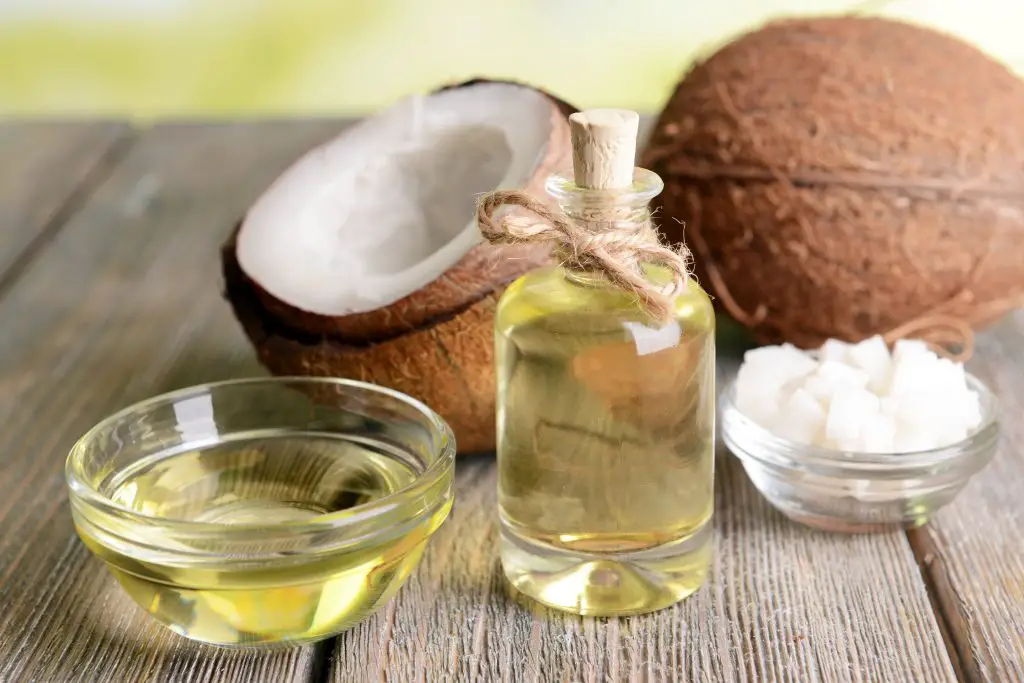Coconut Oil for Hair Growth: What You Need to Know
1st Apr 2023
Coconut oil is an age-old natural ingredient known for stimulating hair growth, resulting in thicker and lengthier locks. The antioxidants, nutrients, vitamins E and K, and iron found in coconut oil helps enable both hair growth and regrowth.
How Does Coconut Oil Work?
Maintaining a well-oiled scalp is vital to preventing hair loss. Once the scalp is covered in coconut oil, preferably by massaging the oil treatment directly onto the scalp in a circular motion, the coconut oil permeates the hair shaft.
By massaging onto the scalp as described above, you’re helping to improve blood circulation, opening up the cuticle, and allowing the oil to penetrate your scalp. Your scalp is now protected from environmental conditions and excess heat.
The vitamins and key fatty acids embedded in coconut oil nourish the scalp while working to remove sebum build-up from the hair follicles. This helps avoid clogged pores, which keep your hair resistant to growth. This oil also contains lauric acid which helps bond the protein in hair, protecting the roots and strands from breakage.
By simply applying the oil as a treatment mask once or twice a week for ten to fifteen minutes, you can create the ideal environment for continued hair growth.
How to use Coconut Oil for Regrowth
There are numerous products you can purchase containing coconut oil. You can also try a simple DIY mask and save a good amount by purchasing coconut oil at an extremely low cost.
Despite all the health and hair advantages this oil offers, it’s also one of the cheapest oils and items you can add to your grocery list.
One way to obtain the maximum benefit of coconut oil is to add another carrier that stimulates hair growth. It’s inexpensive and effective. While you’ll find many variations of DIY potions, here’s an intense treatment for hair loss that’s definitely worth a try:
Mix equal parts of coconut oil and olive oil in a small bowl and then heat them in the microwave or on the stovetop. Once warm, massage the solution directly onto your scalp.
Once your scalp is completely covered with the treatment, soak a towel in hot water, wringing the extra water out and then placing it firmly around your head.
Leave the treatment on for at least an hour before washing out with a mild shampoo. This is a popular and effective method for those that don’t mind taking an extra couple of minutes to whip up a DIY treatment.

Not All Coconut Oil is Created Equal
Coconut oil has erupted in popularity over the last few years due to hundreds of uses and probably just as many logos and designs on the shelves. What does all the verbiage on the labels mean and how do you know which is best for you?
We took the time to do some unscrambling so you can make an informed decision when shopping. Continue reading below to learn which coconut oils to buy and which to avoid:
-
- Food Grade VS. Cosmetic Grade: Grocery store grade coconut oils are usually unlabeled, meaning they’re likely chemically processed hydrogenated oils. Fine for cooking food at high temperatures, not so fine for baking on your scalp. Unrefined coconut oil contains the highest levels of nutrients and fatty acids making it much better for your hair and scalp. An added bonus, it lasts much longer than cooking grade coconut oil.
- Organic Coconut Oil VS. Non Organic Coconut Oil: Organic coconut oil contains no pesticides and is not genetically modified. Although coconuts have a hard shell and are not considered a high-risk food consisting of pesticides, it’s still recommended to always go organic based on the type of fertilizers used during the farming process. Be certain to look for the USDA-Certified Organic Label confirming no pesticides were used when growing the coconuts for oil.
- Refined Coconut Oil VS. Unrefined Coconut Oil: Refined coconut oil sustains heavier processing than unrefined coconut oil, making it less nutritious. The refined coconut oil is likely to contain additives and preservatives and may even be deodorized or bleached to supply the oil its white color. Unrefined coconut oil is processed as little as possible. With no additives, an unblemished white color when solid and clear when liquid, it’s the most natural, purest form of coconut oil—commonly referred to as “virgin” coconut oil.
Is Coconut Oil Still Right for You?
As with any oil, different types of skin, scalps, and hair respond to coconut oil uniquely and it won’t necessarily work for every hair type. Because it helps the hair retain its natural protein, it can be most beneficial for those lacking protein in their hair follicles.
Despite numerous studies confirming the oil’s benefit, there will be hair types that may not reap the same results. In addition, those allergic or prone to a reaction from coconut oil should stay clear if the oil regardless of hair type.

